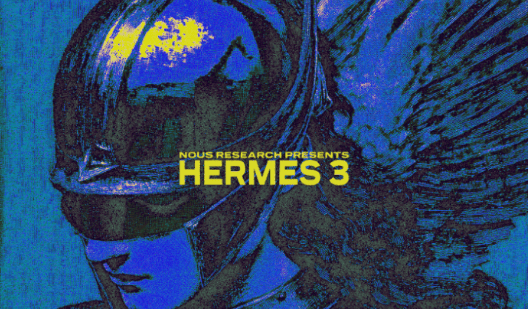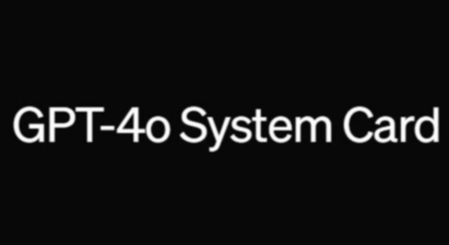🌐 Major Announcements
OpenAI's upcoming AI project, codenamed "Strawberry," which is anticipated to redefine AI capabilities, particularly in solving complex problems and reasoning. Strawberry is designed to handle tasks requiring advanced reasoning and context-sensitive problem-solving, marking significant progress over previous models like GPT-4, especially in mathematical proficiency. Strawberry serves as the foundation for Project Orion, OpenAI's next major AI initiative, expected to set new standards in AI, with enhanced reasoning, language processing, and autonomous decision-making. Orion could be a significant step towards Artificial General Intelligence (AGI), raising both exciting possibilities and challenges. The development of Strawberry and Orion signals a potential revolution in industries that rely on complex decision-making, marking pivotal moments in AI's evolution.

The release of Grok-2, alongside its variant Grok-2 mini, marks a significant advancement in AI capabilities, particularly in language, coding, and reasoning. Building on its predecessor, Grok-1.5, Grok-2 has already outperformed leading AI models in various benchmarks, showcasing its strength in complex tasks. Currently in beta on the 𝕏 platform, Grok-2 is set to be available through an enterprise API, providing developers with access to powerful AI tools. The model excels in a wide range of tasks, from graduate-level science and math to visual reasoning. Grok-2’s future promises further integration of multimodal understanding, enhanced search capabilities, and more sophisticated AI-driven features, positioning it as a transformative force in AI development.

Hermes 3, an advanced AI model based on Meta's Llama 3.1, offers cutting-edge capabilities in reasoning, creativity, and complex problem-solving, with particular adaptability in its 405B version. Hosted on Lambda's cloud infrastructure, the model excels in tasks like role-playing, strategic decision-making, and agentic functions. Hermes 3 introduces "Amnesia Mode," a unique behavior highlighting challenges in scaling AI. Accessible through Lambda’s Chat Completions API, Hermes 3 sets a new standard for user-aligned, open-source AI, paving the way for future innovations like the upcoming "Nous Forge" platform.

Microsoft has expanded its AI offerings with the introduction of three new models in the Phi-3.5 series: Phi-3.5-MoE, Phi-3.5-mini, and Phi-3.5-vision. These models enhance reasoning, vision, and multilingual capabilities while being accessible under an open-source MIT License. The Phi-3.5-MoE model uses a Mixture of Experts architecture for efficient performance, the Phi-3.5-mini offers high multilingual proficiency in a compact form, and the Phi-3.5-vision model advances multi-frame image analysis. Complemented by Azure AI's Guidance tool for structured outputs and robust safety measures, these models set new standards for scalable and responsible AI applications.

The GPT-4o System Card outlines the safety features, ethical considerations, and risk mitigation strategies for OpenAI’s GPT-4o model. It details the comprehensive safety evaluations, including red teaming and third-party assessments, which address potential risks such as unauthorized voice generation, privacy concerns, and bias. OpenAI has implemented safeguards like content filtering, user opt-outs for image training data, and robust risk assessment frameworks. These measures aim to balance innovation with ethical standards, ensuring safe and responsible AI deployment while considering the societal impacts of advanced AI technologies.

🏆 AI Agents: Future of Workflows
August has seen significant advancements in the realm of AI agents, with transformative tools emerging across multiple industries. From legal practice to sales and dynamic decision-making, these AI-driven agents are set to redefine how professionals approach their daily tasks. Whether it's Spellbook Associate revolutionizing legal workflows, Salesforce's new Einstein sales agents optimizing customer interactions, Agent Q advancing autonomous decision-making, or Mistral's La Plateforme democratizing AI agent creation—these innovations highlight the growing influence of AI agents in automating complex processes and enhancing productivity.

Spellbook Associate is an AI agent designed specifically for lawyers, capable of handling complex, multi-step legal projects. It automates tasks like document preparation, due diligence, and risk analysis, allowing legal professionals to focus on higher-value activities, thereby transforming the legal workflow landscape.
Salesforce introduces the Einstein SDR and Einstein Sales Coach AI agents, aimed at revolutionizing sales processes. These autonomous agents manage inbound leads, provide personalized responses, and offer training through realistic role-plays, enhancing sales team efficiency and effectiveness.
Agent Q is a next-generation AI system that excels in complex decision-making tasks. It integrates advanced techniques like Monte Carlo Tree Search and Direct Preference Optimization, enabling it to autonomously navigate and adapt to real-world challenges, setting a new standard for AI capabilities.
Mistral's La Plateforme simplifies the creation and deployment of custom AI agents, making it accessible to both developers and non-technical users. The platform offers tools for model customization and deployment, empowering businesses to leverage AI for automating workflows and enhancing productivity.
😍 Enjoying so far, share it with your friends!
🔦 Spotlight Features
The Open Source Initiative (OSI) has introduced a new definition of open-source AI, aiming to establish clear standards in the rapidly evolving field. This definition emphasizes key principles such as free use, transparency, and modifiability, while addressing challenges like training data transparency and the issue of "open washing," where companies falsely market their AI as open-source. The OSI’s definition is crucial for fostering innovation, collaboration, and consumer trust in AI, and it has significant implications for regulation and the future development of AI technologies.
🆓🖥️🔍🌐
Meta has launched sophisticated web crawlers, Meta-ExternalAgent and Meta-ExternalFetcher, to collect vast amounts of web data for AI training, particularly for its LLaMA AI models. These crawlers, designed for dual purposes like AI data collection and content indexing, can bypass traditional web-blocking methods like robots.txt, raising ethical concerns about data privacy and content control. While these tools enhance the accuracy of Meta's AI models, they challenge established norms in web content management, highlighting the tension between AI innovation and ethical data practices.
🕸️🤖💻📊
Skyfire, a San Francisco startup with $8.5 million in seed funding, is revolutionizing AI by creating autonomous agents that can manage finances, make payments, and hold balances independently. Dubbed the "Visa for AI," Skyfire offers a payment network specifically for AI agents, featuring global payments, automated budgeting, secure authentication, and verification services. By enabling AI to engage in complex financial transactions, Skyfire is pioneering a new AI-driven economy, raising both opportunities and questions about the future role of AI in commerce and finance.
💳🤖💼🌐
🌐 Industry Trends and Future Predictions
👥 Connect & Feedback!
👉 Join Us:
📧 Advertise In Weekly AI News:
📧 Contact directly at [email protected]
😍 Share with your friends!


